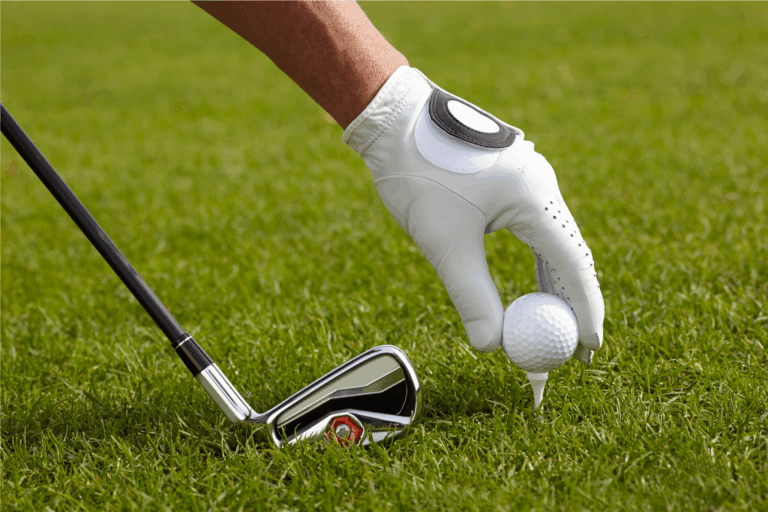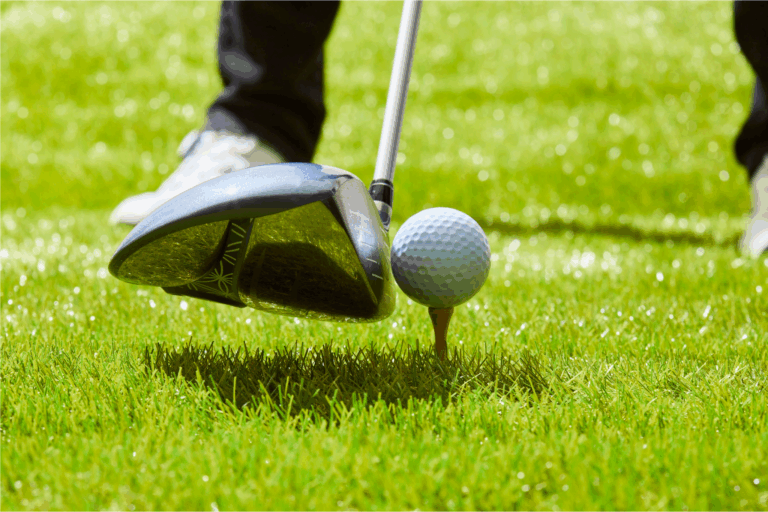Lag Putting Tips for Perfect Distance Control
Stay Tuned with Latest Updates.
BY Adam Bazalgette
Posted On September 19, 2025
When it comes to lowering scores on the golf course, nothing saves more strokes than mastering long putts. Three-putts are a common frustration for amateur golfers, and the difference between a confident lag and a poor golf shot often comes down to distance control.
In this guide, Adam Bazalgette, PGA Teacher of the Year and founder of Scratch Golf Academy, shares simple yet powerful lag putting tips that will help you improve your rhythm, consistency, and overall feel on the greens.
1. Stand Taller and Soften Your Wrists
The first step to better distance control is in your setup. Adam recommends standing a little taller over the ball and softening your wrists.
- A slightly taller stance frees your upper body and makes it easier to create a smooth pendulum motion.
- Soft wrists don’t mean being “wristy,” but rather allowing the golf club to swing naturally so you can feel its weight.
This simple adjustment creates more freedom in the stroke, giving you the ability to make a longer, smoother full swing on long putts without tension.
2. Focus on Solid Contact
Poor contact is one of the biggest reasons players leave long putts short. Many times, golfers think they didn’t hit the putt hard enough, when in reality, they didn’t strike the ball cleanly.
By listening to the sound of your putter striking the ball, you’ll know immediately whether you’ve made solid contact. A thin shot off the putter face will bounce and lose speed, while a true strike rolls smoothly.
Practical drill: spend time hitting putts without a target line. This allows you to focus only on the quality of contact, not the outcome. When you can consistently feel and hear solid strikes, your ability to control ball flight and distance will improve dramatically.
3. Think Pendulum, Not Power
One of the most misunderstood ideas in putting is “accelerating through the ball.” Adam explains that a pendulum naturally accelerates to its fastest point and then begins to slow down—this is what you want in your putting stroke.
Instead of thinking about “how hard” you should be hitting the ball, think about the size of your pendulum motion:
- A longer stroke equals more distance.
- A shorter stroke equals less distance.
This rhythm-based approach ensures you don’t force the stroke and keeps the club face stable through impact.
Practice with Poise
Most amateur golfers are so distracted by the outcome that they never build trust in their stroke. Adam suggests practicing sometimes without a hole—simply swing the club, listen to the sound, and feel the rhythm. Once the stroke feels natural, then move to a target.
This builds confidence, teaches you to control your swing path, and develops better touch. Remember, putting isn’t just mechanics—it’s also artistry and confidence.
Why Lag Putting Matters
Mastering these lag putting tips does more than help you two-putt consistently:
- It reduces pressure on short putts.
- It lowers scores by eliminating unnecessary three-putts.
- It teaches better rhythm and control that can carry over into your full swing.
For a visual demonstration of these techniques, check out this YouTube lesson on lag putting from Scratch Golf Academy.
A Final Word
Golf isn’t just about long drives or picture-perfect iron shots—it’s about scoring. And on the greens, scoring means distance control. When you stand taller, trust your pendulum motion, and make solid contact, you’ll find that lag putts stop being a weakness and start becoming one of your greatest strengths.
So next time you face a daunting 40-footer across the green, take a deep breath, trust your rhythm, and let the ball roll naturally toward the hole. That’s the art of confident lag putting.
“I’ve been a Scratch Golf Academy member for 5 months and in that time I’ve lowered my handicap from a 25 all the way down to a 16. It’s a great program, and if anyone is thinking about trying it, I highly recommend it!”
-Fred Fowler
Create Your FREE 14-Day Account and start shooting lower scores today.
Recent Articles
-
How to Control Your Golf Swing for Consistency
Master your golf swing for consistent shots. Focus on swing plane, pivot, and controlled energy transfer. Practice drills like the one-hand orbit to improve rhythm, accuracy, and distance.
-
Fix Your Knee Movement & Pivot in the Golf Swing
Struggling with flipping your golf club at impact? Discover proven techniques to fix your swing, boost power, and achieve consistent, solid golf shots effortlessly.
-
How To Stop Flipping Golf Club at Impact
Struggling with flipping your golf club at impact? Discover proven techniques to fix your swing, boost power, and achieve consistent, solid golf shots effortlessly.
-
2 Key Downswing Moves for Power & Consistency
Adam Bazalgette reveals two essential downswing moves-proper weight shift and narrowing the swing arc-that help golfers strike the ball cleaner, add power, and improve swing consistency.
-
Top Golf Drills to Improve Ball Striking Consistency
Adam Bazalgette shares drills to help golfers strike the ball consistently, control the clubface, manage low point, & develop a repeatable, reliable swing for better distance & accuracy.
-
How to Square the Clubface & Master Golf Release
Adam Bazalgette explains how to square the clubface, master golf release, and use the Stop-and-Snap Drill. Learn pro tips to hit straighter, more consistent, and powerful shots.










